The post Why Does My Cat Smell Like Rotten Eggs? Our Vet Discusses Reasons & Tips by Dr. Stacie Grannum DVM (Veterinarian) appeared first on Catster. Copying over entire articles infringes on copyright laws. You may not be aware of it, but all of these articles were assigned, contracted and paid for, so they aren't considered public domain. However, we appreciate that you like the article and would love it if you continued sharing just the first paragraph of an article, then linking out to the rest of the piece on Catster.com.
Click to Skip Ahead
It’s important to pay attention to any unusual odors coming from your pet. If your cat smells like sulfur or rotten eggs, it’s crucial to determine the cause, as it could be periodontal disease, an infection, or something to do with their diet. Schedule an appointment with your veterinarian for a thorough check-up to identify the reason for your kitty’s stinky smell.

The 7 Reasons That Your Cat May Smell Like Rotten Eggs
1. Periodontal Disease
An oral infection can lead to foul mouth odors and is typically the cause of the issue. That said, other abnormal mouth odors may be caused by stomatitis, mouth cancer, upper respiratory infection, diabetes, an intestinal blockage, or diseases affecting different organs, such as the liver and kidneys.
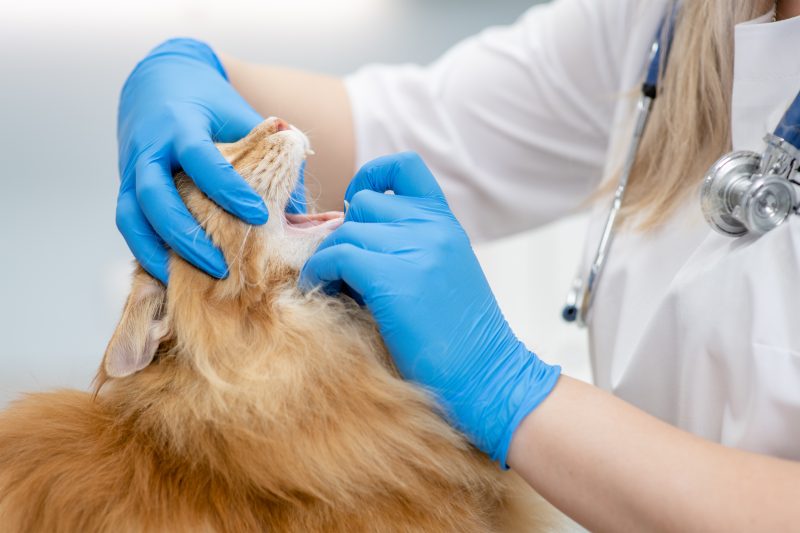
2. Type of Food (Diet)
Feeding certain foods to your cat can lead to bad odors coming from their mouth and poop, including raw foods or ones rich in fish. A sudden change in your cat’s diet can lead to gastrointestinal upset, gas, or diarrhea that can have a sulfur smell.
3. Ear Infection
Fungal and bacterial infections can cause your cat’s ears to smell bad. Ear mite infections can also contribute to foul odors.
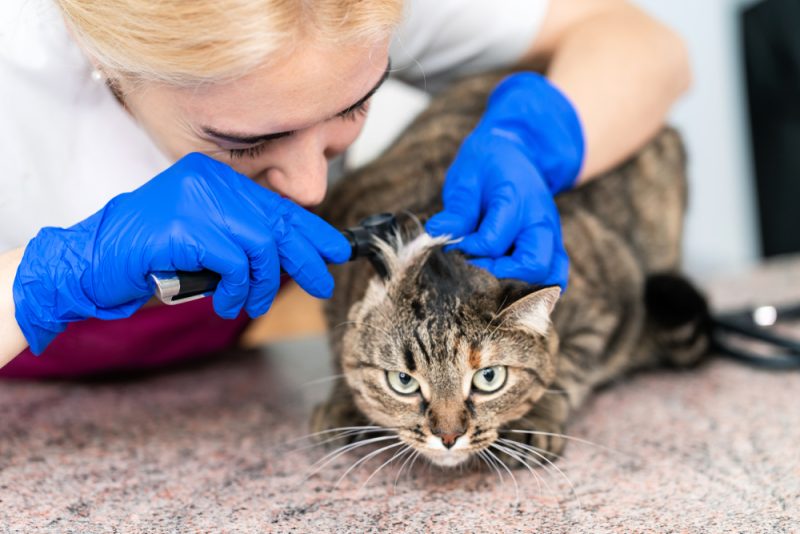
4. Anal Glands
Soft stools may not express the anal glands completely, which may cause a stinky rear end. Infected anal glands can also be smelly themselves. A frightened cat may also intentionally express their anal glands, which have a similar pungent smell.
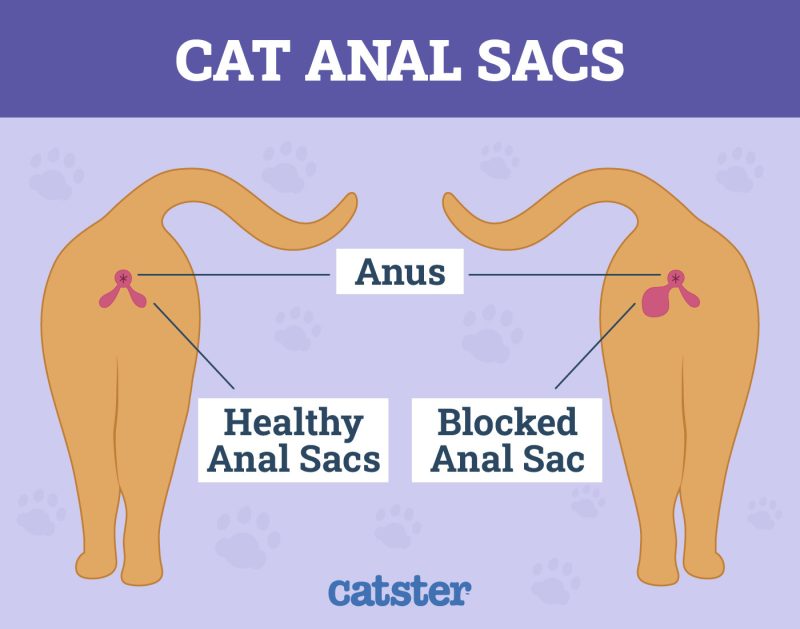
5. Lack of Grooming
Cats with arthritis, obesity, urinary tract infections, diarrhea, or widespread disease may not be able to effectively groom themselves, leading to poor hygiene.
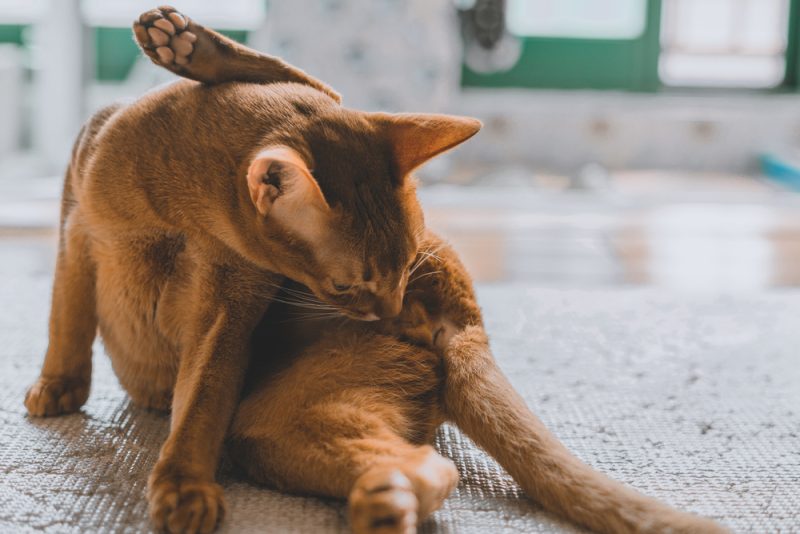
6. Skin Infection
Anything that disrupts the skin’s normal protective barrier, such as wounds, parasites, allergies, and cancer, may cause a bad odor.
7. Dirty Litter Box
Infrequent litter box cleaning can lead to the odors building up, so clean your cat’s litter box daily to prevent a stinky kitty!
Cleaning up after our pets is not the most enjoyable part of owning them. Despite keeping a clean litterbox, cat odors and stains may still exist around the house. Sometimes, even the best litter box setup needs extra help. If you're tired of dealing with bad smells from litter boxes, Hepper Advanced Bio-Enzyme Pet Stain & Odor Eliminator Spray can help with the worst pet stains and smells. Additionally, the Advanced Bio-Enzyme Cat Litter Deodorizer neutralizes odors upon contact.
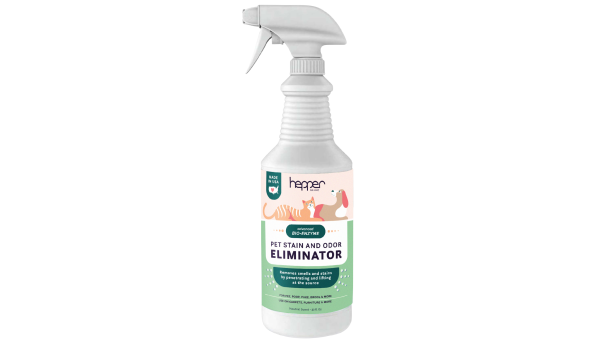 |
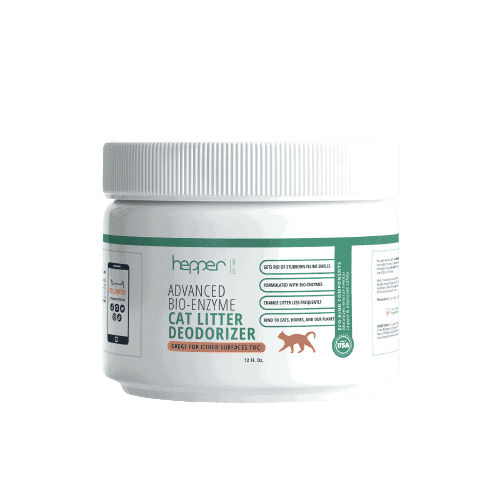 |
|
|---|---|---|
| Hepper Advanced Bio-Enzyme Pet Stain & Odor Eliminator Spray | Hepper Advanced Bio-Enzyme Cat Litter Deodorizer Powder | |
| Eliminates smells |
Eliminates smells:
 |
Eliminates smells:
 |
| Removes stains |
Removes stains:
 |
Removes stains:
 |
| Unscented |
Unscented:
 |
Unscented:
 |
| Light fresh scent |
Light fresh scent:
 |
Light fresh scent:
 |
| Works on multiple surfaces |
Works on multiple surfaces:
 |
Works on multiple surfaces:
 |
| Neutralizes odor within cat litter |
Neutralizes odor within cat litter:
 |
Neutralizes odor within cat litter:
 |
At Catster, we’ve admired Hepper for many years and decided to take a controlling ownership interest so that we could benefit from the outstanding designs of this cool cat company!

Tips for Keeping Your Cat Healthy and Happy
- Clean the litter box daily.
- Schedule daily play and grooming sessions with your cat to help identify any abnormalities.
- Feed your cat a nutritionally complete and balanced diet.
- Take notice of any unusual or abnormal behaviors.
- Schedule regular veterinary visits to detect problems early.

Conclusion
If you notice that your cat has a strong smell of sulfur or rotten eggs, it could be gas or expressed anal glands. But the smell could also indicate various underlying issues. Oral infections, cancer, skin infections, lack of grooming, and even the type of food or the cleanliness of the litter box can all be contributing factors. If you detect a sudden onset of this odor, it’s important to promptly schedule a veterinary check-up to identify and address the root cause.
Featured Image Credit: Stanislaw Mikulski, Shutterstock
The post Why Does My Cat Smell Like Rotten Eggs? Our Vet Discusses Reasons & Tips by Dr. Stacie Grannum DVM (Veterinarian) appeared first on Catster. Copying over entire articles infringes on copyright laws. You may not be aware of it, but all of these articles were assigned, contracted and paid for, so they aren't considered public domain. However, we appreciate that you like the article and would love it if you continued sharing just the first paragraph of an article, then linking out to the rest of the piece on Catster.com.
from Catster https://ift.tt/9ZHw64z
